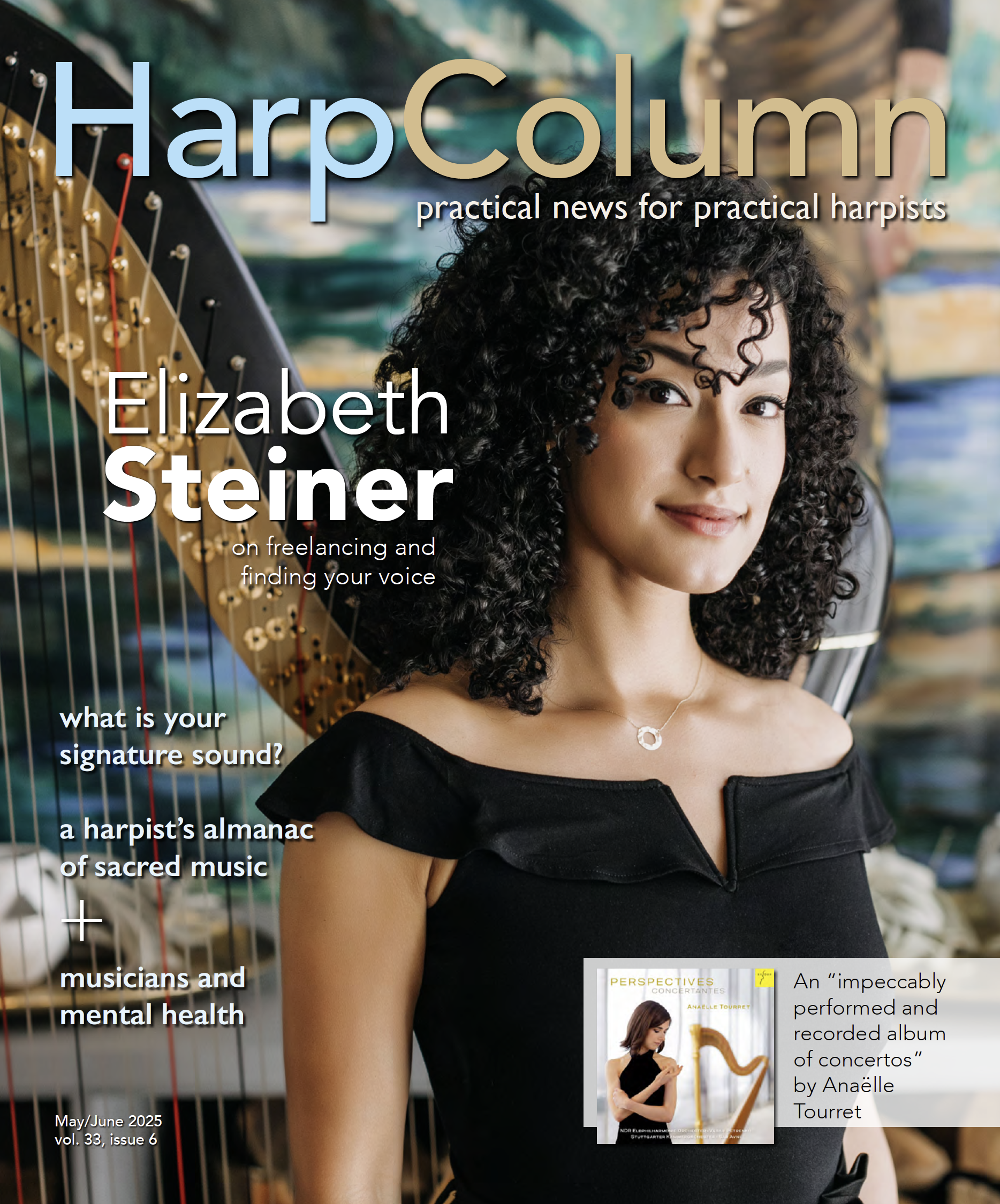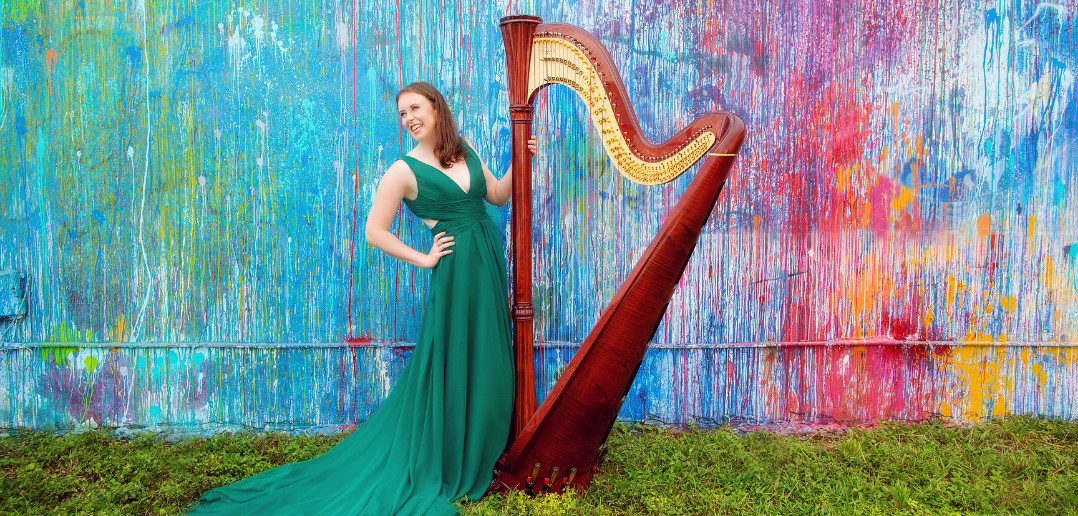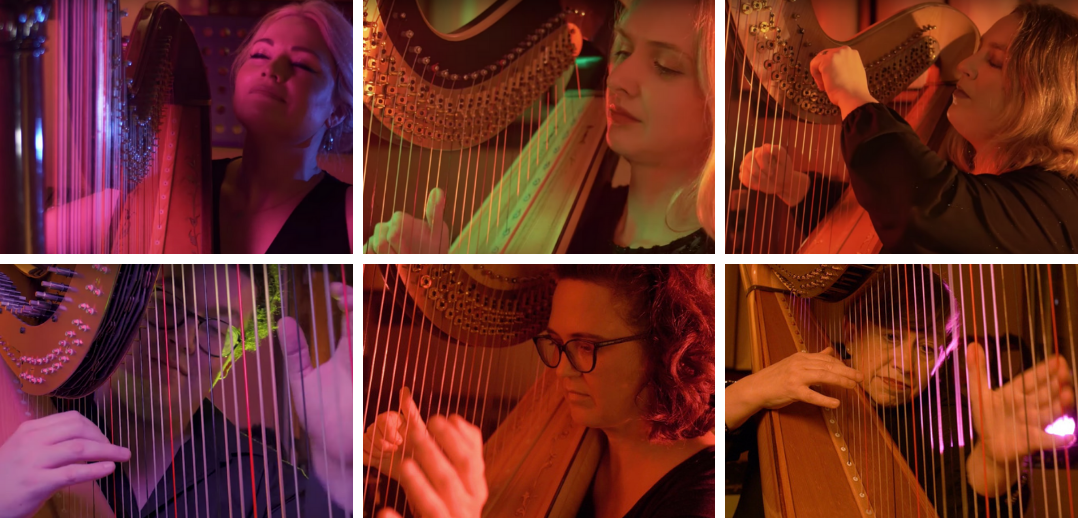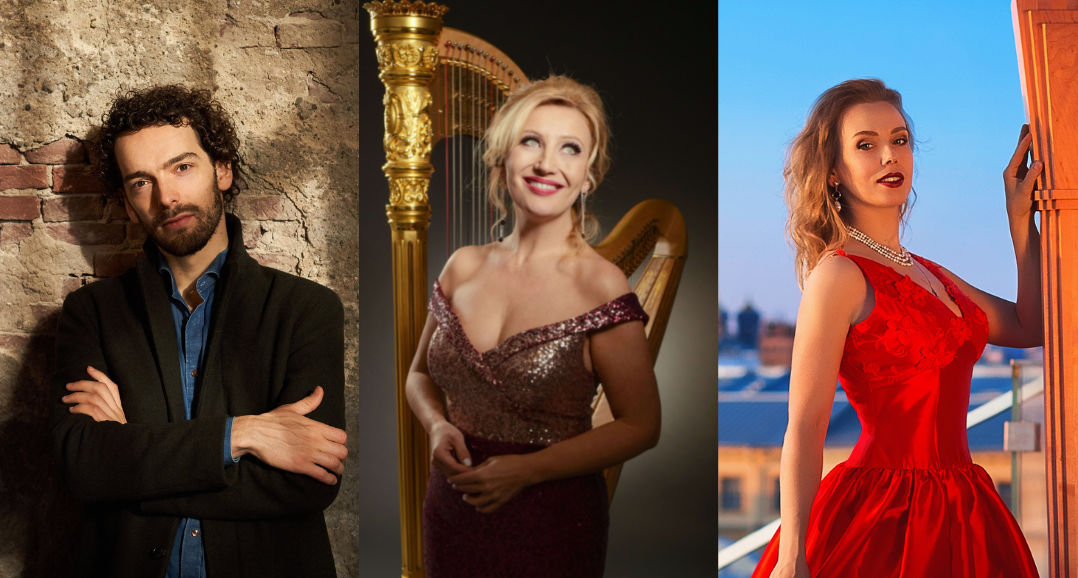The Jackson Symphony Orchestra (JSO) in Michigan will feature a harp concerto to kick off its new Equal Billing Project supporting the music of under-represented composers. Chen-Yu Huang, JSO principal harpist and professor of harp at Michigan State University, will give the American premiere of French female composer Fernande Decruck’s Harp Concerto. The performance will take place Nov. 13 at 7:30 p.m. EST and will be livestreamed on JSO’s YouTube channel and Facebook page.
JSO Music Director Matthew Aubin invited Huang to perform and record the rediscovered harp concerto. “This piece was written for Pierre Jamet, who was one of the most significant harpists in France in the middle of the 20th century,” Aubin notes. “It was also written during Decruck’s ‘mature’ period, around the 1940s, in which she was writing some of her best music.”
Huang explains her process of learning the concerto. “In some sections Decruck used bi-tonality. This was tricky to figure out the proper pedals for the harp, but it created a very cool sound,” she says. Huang offers a few highlights to listen for in the concerto, adding, “Decruck’s style is very lighthearted and similar to Germaine Tailleferre’s, but with a little more warmth. Parts of the concerto sound like children are playing or like childhood themes. In the second movement, you will hear a motherly warmth rather than the typical theme music between lovers.”
To find out more about the event and the project, we reached out to Belle Coty, Coordinator of Fund and Audience Development for the JSO.
Tell us about the Equal Billing Project. Why did the JSO choose to feature a harp concerto by Fernande Decruck?
The Equal Billing Project was created by the Jackson Symphony Orchestra and Music Director Matthew Aubin to support music written by under-represented composers—like women and people of color—who are deceased. This is special for me because I study a composer that fits that description. It takes money to record her music, engrave her works, and research her music. I have found that grant programs for this type of research do not exist. So, the goal of the Equal Billing Project is to fill a need that I believe exists. This year the JSO is starting by recording and supporting the music by Fernande Decruck. However, in future years we are hoping to make this project a grant program for other people to apply and receive funds from the JSO for their project.
Tell us about Decruck’s career as a composer. Did she have fewer opportunities as a female composer? How was her career affected by the Nazi occupation of France?
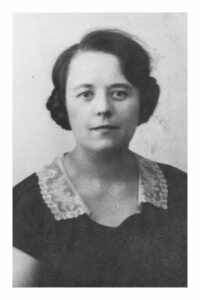 Decruck was an organist, originally, who went to the Paris Conservatory. She was known to improvise symphonies from melodies taken from audience suggestions. She had this beautiful ability, almost like a jazz musician, to improvise and create on the spot. So, with the support of her husband—a professional musician, turned music publisher—she became a full-time composer. Most of her early works were for organ (her instrument), or for saxophone or bass (which were her husband’s instruments). But as she developed, you can trace her instrument choices through her friends’ instruments until she eventually wrote for full orchestra. In addition to classical music, she also arranged popular music which was published by her husband. She also composed for films under her regular name and pseudonyms like Reyjade and Fay Beryl.
Decruck was an organist, originally, who went to the Paris Conservatory. She was known to improvise symphonies from melodies taken from audience suggestions. She had this beautiful ability, almost like a jazz musician, to improvise and create on the spot. So, with the support of her husband—a professional musician, turned music publisher—she became a full-time composer. Most of her early works were for organ (her instrument), or for saxophone or bass (which were her husband’s instruments). But as she developed, you can trace her instrument choices through her friends’ instruments until she eventually wrote for full orchestra. In addition to classical music, she also arranged popular music which was published by her husband. She also composed for films under her regular name and pseudonyms like Reyjade and Fay Beryl.
After teaching at the Toulouse Conservatory during the late 1930s, her family moved to Paris, where she dedicated herself entirely to composition. During World War II, she had many high-profile opportunities, despite the Nazi occupation of France. Even though the war was happening and the Nazis occupied Paris, concerts continued. Many people expect that the Nazi occupation limited cultural opportunities, but it is possible that the absence of male composers who were serving in the war made it more possible for female composers to have opportunities.
The biggest factor affecting Decruck’s work was her divorce from her husband. With the divorce, she lost her publication support and went from having the luxury of only composing to needing to teach to make financial ends meet. After a couple of years, she had a stroke and was left partially paralyzed. As her son described it, she went from a woman in her early 50’s with lots of life to an old woman in a matter of days. Around this time, her two oldest children were starting families. She had no partner, and only her youngest son, a teenager, as a caregiver. No one was there to take up the mantle and promote and advocate for her. By the time the family wished to make her works known, most performers and conductors who would have remembered her work had passed away.
As a female composer, Decruck faced many of the same issues as female composers today. Sometimes she struggled to find artists to perform her works. She struggled to make financial ends meet, and she was likely getting paid less than her male counterparts. Her struggles mostly resulted from being estranged from her husband (and publisher) and dying at an early age.
How can listeners stream the concert?
The concert will be available for free online streaming at our Jackson Symphony Orchestra’s YouTube channel or Facebook page on Saturday, November 13, at 7:30 p.m. The concert will also be in person at Jackson College’s Potter Center in Jackson, Mich.
For those of you reading this, a half-off discount code of HARP4DECRUCK will be available and students can receive $5 tickets for any concert.
The CD will be released in the summer of 2022 by Claves. The sheet music is available through the publisher Gerard Billaudot and will be available soon both as orchestra parts for rent and as a harp solo with the piano reduction.
For more information about the event, visit the JSO website. To learn more about Fernande Decruck, visit the composer’s website. To learn how to participate in or support the Equal Billing Project, email bellec@jacksonsymphony.org.




